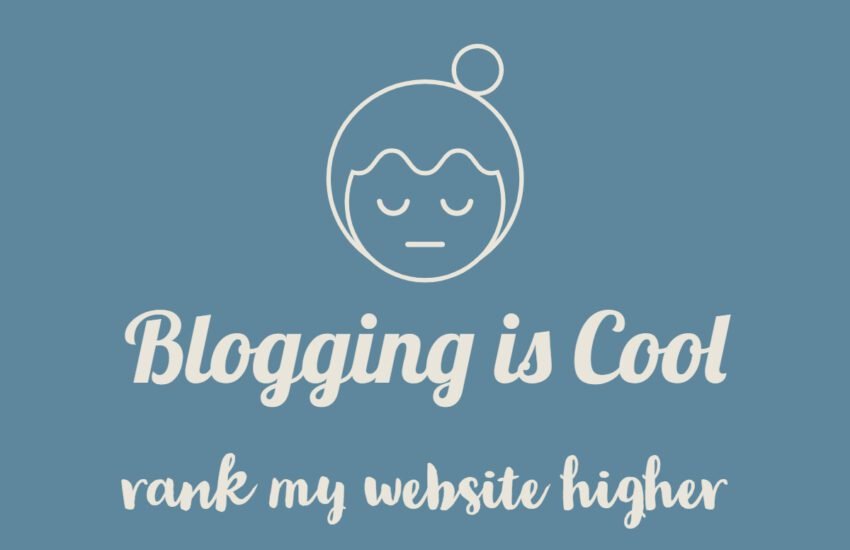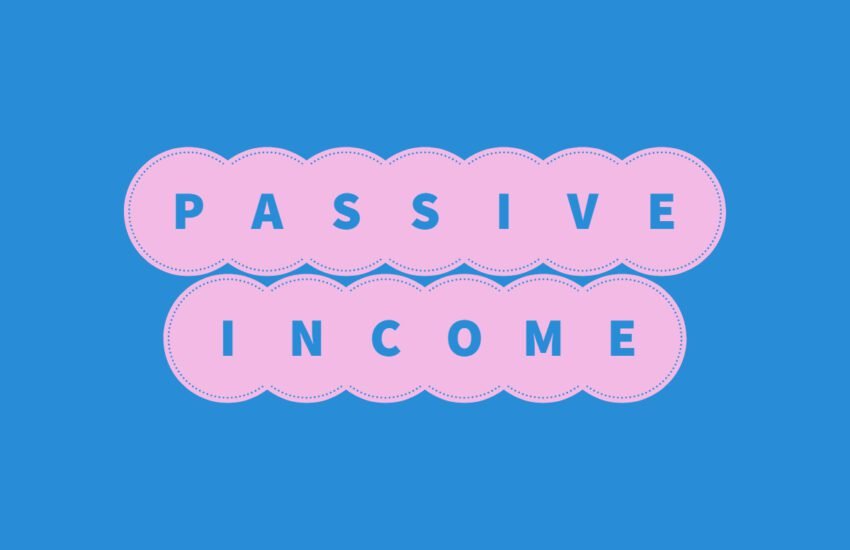8 Crucial Link Building Mistakes You Should Avoid
SEO, or Search Engine Optimization, is a complex and ever-evolving field that encompasses various strategies and techniques to improve a website’s visibility and ranking in search engine results pages (SERPs).
One of the fundamental aspects of SEO is link building, which involves acquiring hyperlinks from other websites to your own.
- Types of Links
- 8 Link Building Mistakes to Avoid
- Conclusion
- Frequently Asked Questions
- 1. What are some common mistakes to avoid when building links to your website?
- 2. Why is it crucial to avoid black hat link building techniques?
- 3. How can irrelevant or low-quality backlinks harm your website’s SEO performance?
- 4. What are some common misconceptions about link building that website owners should be aware of?
- 5. How can you identify and disavow harmful backlinks to your website?
- 6. How can link building mistakes impact your website’s reputation and credibility?
- 7. How can you recover from link building mistakes and improve your website’s backlink profile?
- 8. How can link building mistakes impact your website’s search engine rankings and organic traffic?
- 9. What are some white hat link building strategies that website owners should prioritize?
- 10. How can you avoid link building mistakes and build a strong, sustainable backlink profile over time?
Types of Links
These links play a crucial role in determining a website’s authority, relevance, and trustworthiness in the eyes of search engines like Google.
Before we talk about the mistakes that you can make while building links, let’s explore the various types of links used in SEO and their significance.
1. Natural Links
Natural links, also known as editorial links, are acquired organically when other websites find your content valuable and decide to link to it without any incentivization or manipulation. These links are highly valuable in SEO as they indicate to search engines that your content is authoritative and worthy of citation.
2. Manual Outreach Links
Manual outreach involves proactively reaching out to other website owners or bloggers to request a link to your content.
This approach often involves personalized emails or messages, offering something of value in exchange for the link, such as guest posts, expert opinions, or collaboration opportunities.
Manual outreach requires effort but can yield high-quality links from relevant and authoritative websites.
3. Guest Blogging Links
Guest blogging involves writing content for other websites in your niche in exchange for a link back to your own website. When done correctly, guest blogging can help establish your authority in your industry, drive referral traffic, and earn valuable backlinks to improve your site’s SEO performance.
4. Broken Link Building
Broken link building is a tactic where you identify broken links on other websites and offer your own content as a replacement.
This approach provides value to website owners by helping them fix broken links while simultaneously earning a link to your own content.
5. Resource Page Links
Many websites have resource pages that curate helpful links and resources related to a specific topic.
By identifying relevant resource pages in your niche and reaching out to the website owners, you can request to have your content included, thus earning a valuable backlink.
6. Social Profile Links
Links from social media platforms such as Facebook, Twitter, LinkedIn, and Instagram may not directly impact your website’s search engine rankings, but they can help drive traffic and increase brand visibility, which indirectly contributes to your SEO efforts.
7. Directory Links
While directory links have diminished in importance over the years, obtaining listings in reputable and industry-specific directories can still provide some SEO value, particularly for local businesses.
However, it’s essential to prioritize quality directories and avoid spammy or low-quality ones.
8. Forum and Community Links
Participating in online forums, communities, and discussion boards relevant to your industry can help you establish authority and credibility. Including links to your website in forum signatures or within relevant discussions can generate referral traffic and contribute to your SEO efforts.
9. Press Release Links
Issuing press releases about noteworthy events or announcements related to your business can help attract media attention and earn coverage on news websites and industry publications.
While press release links may not directly impact your search rankings, they can enhance your online visibility and brand reputation.
10. Web 2.0 Links
Web 2.0 platforms, such as Blogger, WordPress.com, and Medium, allow users to create and publish content on free blogging platforms.
While these platforms may not provide as much SEO value as they once did, creating high-quality content on Web 2.0 sites with relevant links back to your website can still contribute to your overall link profile.
11. Image and Infographic Links
Creating visually appealing and shareable content such as images, infographics, and videos can attract backlinks from other websites looking to enhance their own content.
Including embed codes or attribution links with your visual content makes it easier for others to link back to your website when using your visuals.
12. Edu and Gov Links
Links from educational (.edu) and government (.gov) websites are highly coveted in the SEO community due to their perceived authority and trustworthiness.
While obtaining such links can be challenging, contributing valuable resources or content to educational institutions or government agencies can sometimes lead to opportunities for backlinks.
8 Link Building Mistakes to Avoid
Link building is an essential aspect of search engine optimization (SEO) that helps improve your website’s visibility and authority.
However, it’s important to approach link building strategically and avoid common mistakes that can harm your SEO efforts.
In this article, we will discuss eight crucial link building mistakes to avoid, ensuring that your link building strategy is effective and beneficial for your website.
All Links with the Same Length Content
One common mistake in link building is creating all links with the same length content.
This can make it obvious to search engines that the links were deliberately placed, potentially leading to penalties. To avoid this, vary the word count of your content when creating links.
This natural variation will make your link building efforts appear more organic and authentic.
Overusing Author Boxes
Author boxes are a common feature in guest posting, allowing authors to provide a brief bio and include links to their websites.
However, using author boxes for all your links and labeling them as guest posts can raise suspicion and reduce the effectiveness of your link building strategy. Instead, diversify your link sources and use different methods to build links, such as resource pages, interviews, or mentions in relevant articles.
Focusing Too Much on Anchor Text
Many people believe that including exact match keywords in the anchor text of their links is crucial for SEO.
While anchor text is important, it’s not necessary to heavily rely on keywords in every anchor text. Search engines have become smarter and can understand the context and relevance of a link without relying solely on the anchor text.
Use a mix of branded, generic, and keyword-rich anchor texts to maintain a natural link profile.
Linking to the Wrong Pages
Linking only to your money pages, such as product or service pages, can limit the effectiveness of your link building strategy.
Instead, consider linking to your homepage or other relevant pages on your website. This helps distribute the link equity across your site and improves the overall authority and visibility of your website.
Building Links Too Quickly
Building links too quickly can raise red flags to search engines, potentially resulting in penalties.
It’s important to maintain a natural link velocity unless your website has gone viral and naturally attracts a high number of links.
Aim for a moderate pace, building around 5 to 10 high-quality links per month. Additionally, complement your link building efforts with social marketing to create a holistic online presence.
Relying on Links That Don’t Stick
Link building through vendors or other third-party sources can be risky, as website owners have the ability to remove these links at any time.
When building links, focus on establishing relationships with authoritative websites that are more likely to maintain your links in the long term.
This ensures that your link building efforts continue to provide value and contribute to your website’s SEO.
Obtaining Irrelevant Links
Obtaining irrelevant links can be a waste of both time and money. It’s important to ensure that the websites you are linking from are relevant to your product, service, or industry.
Relevance at the page level is crucial, as links from relevant websites carry more weight and authority in the eyes of search engines.
Focus on building links from websites that are within your niche and have a strong reputation.
Lack of Link Variation
Building a diverse link profile is essential for a successful link building strategy.
Relying solely on guest posts or comments can limit the effectiveness of your efforts. Instead, aim for a variety of link types, such as media links, citations, or links from reputable foundations or organizations.
This diverse link profile will not only improve your website’s SEO but also provide a more natural and organic link building strategy.
Conclusion
Link building is a multifaceted aspect of SEO that involves acquiring hyperlinks from other websites to improve your site’s authority, relevance, and trustworthiness in the eyes of search engines.
By employing a diverse range of link building strategies and focusing on acquiring high-quality, relevant links from authoritative sources, you can enhance your website’s SEO performance and drive organic traffic.
However, it’s essential to approach link building ethically and avoid spammy or manipulative tactics that could harm your website’s reputation in the long run.
Avoiding these crucial link building mistakes will help ensure that your link building strategy is effective, sustainable, and beneficial for your website’s SEO.
By diversifying your link sources, maintaining a natural link velocity, and focusing on relevance and quality, you can build a strong link profile that boosts your website’s visibility and authority in search engine rankings.
Frequently Asked Questions
1. What are some common mistakes to avoid when building links to your website?
Common link building mistakes to avoid include:
Pursuing quantity over quality
Focusing solely on acquiring a high volume of backlinks without considering their relevance, authority, or trustworthiness.
Ignoring link diversity
Relying heavily on a single type of link (e.g., directory links or guest posts) rather than diversifying your backlink profile with a variety of sources.
Neglecting anchor text diversity
Over-optimizing anchor text by using exact-match or keyword-rich anchors excessively, which can appear unnatural to search engines and trigger penalties.
Ignoring relevancy
Building links from websites or pages that are irrelevant to your niche or industry, which may not provide meaningful value or relevance to your site.
Neglecting quality content
Failing to create high-quality, valuable content that naturally attracts backlinks through its usefulness, uniqueness, and relevance to your target audience.
2. Why is it crucial to avoid black hat link building techniques?
It’s essential to avoid black hat link building techniques because they violate search engine guidelines and can result in severe penalties, including deindexing or demotion in search rankings.
Black hat tactics such as buying links, link farms, and link manipulation schemes are considered manipulative and deceptive practices that undermine the integrity of search results, diminish user trust, and damage your site’s reputation and credibility.
3. How can irrelevant or low-quality backlinks harm your website’s SEO performance?
Irrelevant or low-quality backlinks can harm your website’s SEO performance in several ways:
– Decreased trust and authority:
Backlinks from irrelevant or low-quality websites may signal to search engines that your site is not trustworthy or authoritative, leading to lower rankings and visibility in search results.
– Risk of penalties:
Acquiring backlinks from spammy or penalized websites can trigger manual actions or algorithmic penalties from search engines, resulting in significant drops in rankings and traffic.
– Negative user experience:
Users may encounter your website through irrelevant or low-quality backlinks and find the content unhelpful or unrelated to their needs, leading to higher bounce rates and lower engagement metrics.
4. What are some common misconceptions about link building that website owners should be aware of?
Some common misconceptions about link building include:
– Quantity over quality:
Believing that acquiring a large number of backlinks, regardless of their quality or relevance, will automatically improve search rankings.
– Easy shortcuts:
Expecting quick or effortless results from link building tactics without investing in proper research, planning, and execution.
– Link velocity:
Assuming that increasing the speed or volume of link acquisition will lead to faster SEO gains, without considering the risks of appearing unnatural to search engines.
– Link exchanges:
Believing that reciprocal link exchanges or link trading arrangements are an effective strategy for building authority and relevance, despite the potential for penalties and manipulation.
5. How can you identify and disavow harmful backlinks to your website?
You can identify and disavow harmful backlinks to your website by:
– Using tools like Google Search Console, Ahrefs, or Moz to analyze your backlink profile and identify potentially harmful or spammy links.
– Reviewing link quality metrics such as domain authority, relevance, and trustworthiness to assess the impact of each backlink on your site’s SEO performance.
– Creating a disavow file containing the URLs of harmful backlinks and submitting it to Google through the Disavow Links tool in Google Search Console, requesting that search engines ignore those links when assessing your site’s authority and relevance.
6. How can link building mistakes impact your website’s reputation and credibility?
Link building mistakes can impact your website’s reputation and credibility by:
Associating your site with spam or low-quality content
Building links from spammy or irrelevant websites can tarnish your site’s reputation and authority, making it appear less trustworthy or credible to users and search engines.
Damaging brand perception
Poor-quality backlinks or manipulative link building tactics can reflect poorly on your brand, leading to negative associations and diminished brand equity.
Undermining user trust
Users may view your site unfavorably if they encounter irrelevant or low-quality backlinks leading to your content, leading to higher bounce rates, lower engagement, and reduced trust in your brand.
7. How can you recover from link building mistakes and improve your website’s backlink profile?
To recover from link building mistakes and improve your website’s backlink profile, consider the following strategies:
Conduct a thorough backlink audit
Review your existing backlink profile to identify harmful or irrelevant links and take steps to remove or disavow them.
Focus on quality over quantity
Shift your focus from acquiring a large volume of backlinks to acquiring high-quality, relevant links from authoritative sources within your niche.
Create valuable content
Invest in creating high-quality, valuable content that naturally attracts backlinks from reputable websites and enhances your site’s authority and relevance.
Build relationships
Establish relationships with influencers, bloggers, and industry experts within your niche to earn natural backlinks through collaborations, guest posting, and content partnerships.
8. How can link building mistakes impact your website’s search engine rankings and organic traffic?
Link building mistakes can impact your website’s search engine rankings and organic traffic by:
Triggering manual actions or penalties
Violating search engine guidelines or engaging in manipulative link building tactics can result in manual actions or algorithmic penalties that demote your site’s rankings and visibility in search results.
Decreasing authority and relevance
Backlinks from low-quality or irrelevant websites can diminish your site’s authority and relevance in the eyes of search engines, leading to lower rankings for target keywords and decreased organic traffic.
Undermining user experience
Poor-quality backlinks can lead users to irrelevant or unhelpful content, resulting in higher bounce rates, lower engagement metrics, and reduced trust in your site’s quality and relevance.
9. What are some white hat link building strategies that website owners should prioritize?
White hat link building strategies that website owners should prioritize include:
– Creating high-quality, valuable content that naturally attracts backlinks from authoritative websites within your niche.
– Guest blogging on reputable industry websites and publications to earn editorial links and establish thought leadership and expertise.
– Building relationships with influencers, bloggers, and webmasters through networking, collaborations, and content partnerships.
– Participating in relevant online communities, forums, and discussions to share valuable insights, resources, and links to your content.
– Monitoring brand mentions and unlinked references to your website or content and reaching out to webmasters to request attribution and backlinks.
10. How can you avoid link building mistakes and build a strong, sustainable backlink profile over time?
To avoid link building mistakes and build a strong, sustainable backlink profile over time, follow these best practices:
Prioritize relevance and quality
Focus on acquiring backlinks from authoritative, relevant sources within your niche that provide genuine value to your audience.
Diversify your link sources
Seek out a variety of link opportunities, including guest blogging, influencer outreach, content partnerships, and resource page link building, to ensure a diverse and natural backlink profile.
Stay informed and adapt
Keep abreast of changes in search engine algorithms, industry trends, and best practices for link building, and adjust your strategy accordingly to maintain effectiveness and compliance with guidelines.
Conduct regular audits
Periodically review your backlink profile to identify and address any harmful or irrelevant links, and continuously refine your approach to link building based on performance data and feedback.


